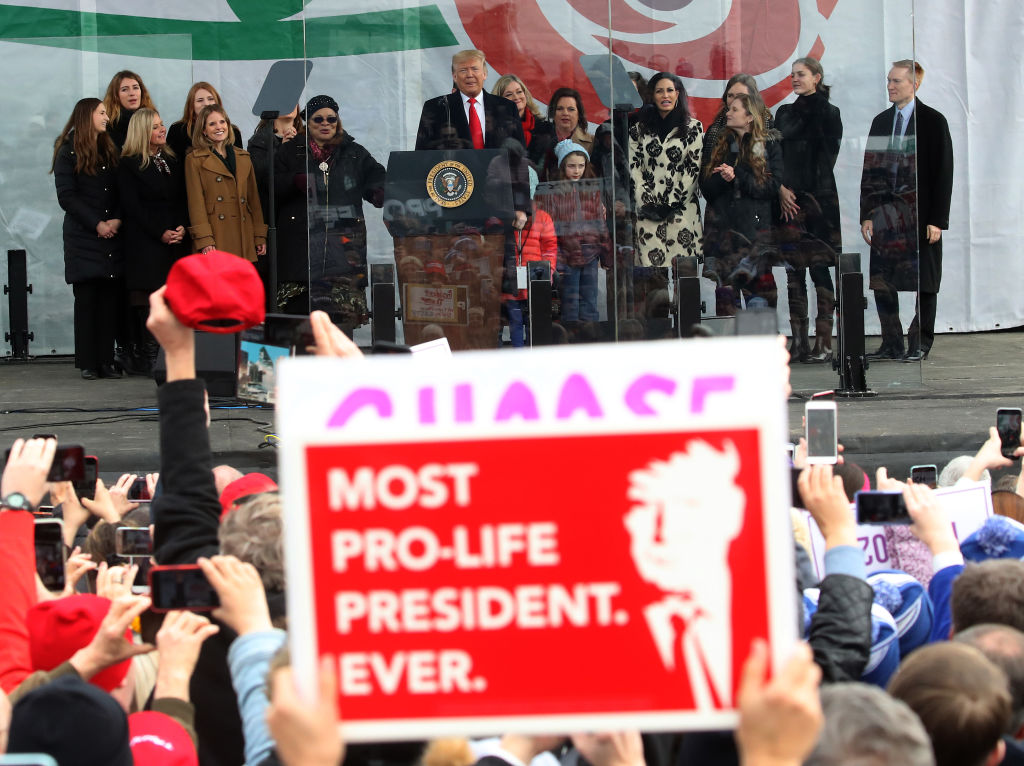When Donald Trump cut all U.S. funding to the U.N. agency that provides sexual and reproductive health services in some of the world’s most fragile countries, other nations stepped in to fill the gap. As the prospect of a second Trump term in office looms, advocates are warning that safety net may not be there this time around.
The wars in Ukraine, Sudan and the Middle East have strained global aid budgets and this combined with a rise in conservatism around the world has made it a lot less likely that countries will step in again – with potentially devastating results for women globally.
“We’re not in the same context we were in 2016,” said Elizabeth Sully, principal research scientist at the Guttmacher Institute, a research organization that supports sexual and reproductive health and rights. “The world’s not prepared to respond in the same way.”
Although Trump has distanced himself from Project 2025, the conservative blueprint for the next Republican president, it proposes once again eliminating the United State’s contribution to the United Nations Population Fund (UNFPA).
And while Trump has not commented on his plans should he win back the White House, every Republican president since the mid-1980s has cut U.S. donations to UNFPA, the world’s leading family planning provider. Trump did so in each of his four years in office.
After losing nearly $70 million under the last Trump administration, more than 100 donors helped to ensure people still received vital services. Countries such as Sweden, Norway, Denmark, the Netherlands and Canada increased their contributions while organizations such as She Decides, a Dutch initiative, helped raise $450 million in response.
But with the situation compounded by Trump’s expanded Mexico City Policy (dubbed the ‘global gag rule’ by opponents), a strict overseas anti-abortion policy, the hole left by the U.S. was not entirely filled, said Caitlin Horrigan, senior director of global advocacy for the Planned Parenthood Action Fund. “We still felt severe harm.”
And with several countries known for their pro-development stances shifting politically to the right in recent years, support won’t be so easily mobilized this time, she said.
Take the Netherlands, the second-largest European donor of sexual and reproductive health assistance. Last month, the country’s right-wing government announced it would cut development aid by more than two thirds over the next three years, threatening essential sexual health services globally.
A similar situation is playing out in Sweden, another of UNFPA’s largest donors, as well as across Germany and France.
Governments have also navigated multiple storms in recent years. The pandemic, followed by ongoing wars, particularly in Ukraine, have put “huge” strains on aid budgets in European countries, said Sully from the Guttmacher Institute. When announcing historic aid reforms last year, the right-wing Swedish government said it would place more “focus on Swedish interests” and that it viewed Ukraine as the “highest priority.”
In an email, Benjamin Dousa, the Minister for International Development Cooperation and Foreign Trade, said Sweden increased its core funding to UNFPA this year but “continuously” reviews its development assistance to meet new challenges.
“We are facing a drastically deteriorated security context, where authoritarian states’ pursuit of increased global influence poses a threat to peace and security and has a severe impact on people living in vulnerable situations,” he said.
Shifts in political winds in the U.S. and elsewhere make it difficult for organizations like UNFPA to provide the support needed for sexual and reproductive health around the world, advocates said.
“[The consequences] were devastating last time,” said Sully. “I think there will be more this time.”



